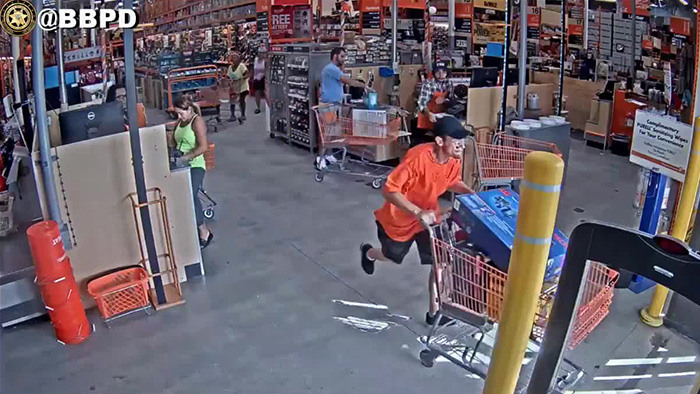
In State v. Lake, the WA Court of Appeals held that Theft by ordering items online from catalogs will not support a conviction for second degree organized retail theft because the takings are not from a “mercantile establishment;” a phrase which only applies to a physical establishment.
BACKGROUND FACTS
In 2017, Ms. Lake was living in a senior living apartment complex. In February 2017, she placed three catalog orders with different companies using the names and accounts of other apartment complex residents. She had the items delivered to her as “gifts.”
One of the residents noticed that someone had placed an order using her credit account. She reported the suspicious order to the front office and made a fraud complaint with the police. After an investigation, the State charged Lake with one count of second degree organized retail theft, three counts of first degree identity theft, and two counts of second degree possession of stolen property.
At the close of the State’s case, Lake moved to dismiss the second degree organized retail theft charge because there was no evidence that she obtained goods form a “mercantile establishment” as required for that charge. The trial court denied the motion.
The jury found Lake not guilty of one count of first degree identity theft but guilty of the lesser degree offense of second degree identity theft. The jury found Lake guilty of the other five charged counts.
Lake appealed her convictions on arguments that her thefts involving online catalog purchases were not from a mercantile establishment.
COURT’S ANALYSIS & CONCLUSIONS
The WA Court of Appeals concluded that the term “mercantile establishment” was ambiguous, and applied the Rule of Lenity to hold that Lake’s thefts were not from a mercantile establishment.
The Court gave the framework for reaching its decision. It reasoned that if the plain language of the statute is susceptible to more than one reasonable interpretation, the statute is ambiguous.
“We first attempt to resolve the ambiguity and determine the legislature’s intent by considering other indicia of legislative intent, including principles of statutory construction, legislative history, and relevant case law . . . If these indications of legislative intent are insufficient to resolve the ambiguity, under the rule of lenity we must interpret the ambiguous statute in favor of the defendant.”
With that, the Court of Appeals examined the definition of “mercantile establishment.” In order to prove the charge, the State had to prove that Lake committed theft of property with a cumulative value of at least $750 from one or more “mercantile establishments.”
“The question here is whether fraudulently purchasing items online from a catalog constitutes theft from a mercantile establishment, or whether that term is limited to physical retail stores,” said the Court.
The court reviewed former RCW 9A.56.360 which gave a working definition of “mercantile establishments” as it applied to the crime of retail theft with special circumstances:
(1) A person commits retail theft with special circumstances if he or she commits theft of property from a mercantile establishment with one of the following special circumstances: (a) To facilitate the theft, the person leaves the mercantile establishment through a designated emergency exit; (b) The person was, at the time of the theft, in possession of an item, article, implement, or device used, under circumstances evincing an intent to use or employ, or designed to overcome security systems including, but not limited to, lined bags or tag removers.
Here, reasoned the court, former RCW 9A.56.360 shows that the legislature intended to stop thefts from physical retail stores:
“Only a physical store has a ‘designated emergency exit’ and employs security systems that can be overcome by ‘lined bags’ or ‘tag removers.’” ~WA Court of Appeals
Consequently, the Court concluded that the statutory term “mercantile establishment” was ambiguous. And because the term “mercantile establishment” remains ambiguous, the Court applied the rule of lenity and interpreted the ambiguous statute in favor of Ms. Lake.
“Therefore, we hold that the trial court erred in denying Lake’s motion to dismiss because the evidence was insufficient to convict Lake of second degree organized retail theft,” said the Court. With that, the court dismissed the charges.
My opinion? Good decision. The Prosecutor should have sought different charges under these circumstances. Clearly, the organized retail theft statute clearly applies to brick-and-mortar businesses.
As a side-note, the Rule of Lenity is a rarely used criminal defense argument. In most cases, the definitions of terms are discussed in the legislative intent of statutes and/or found in the criminal statutes themselves. This case shows that when the Rule of Lenity is correctly applied, it’s quite powerful.
Please contact my office if you, a friend or family member are charged with Theft. Hiring an experienced and competent criminal defense attorney is the best step toward justice.










